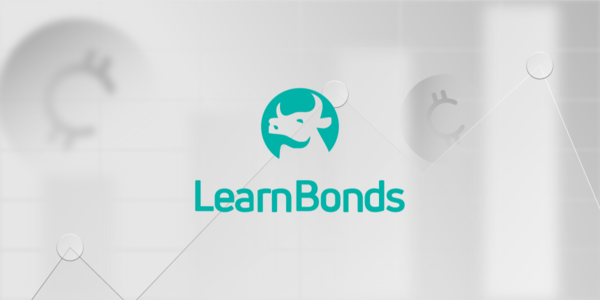Commodity Trading UK Guide 2022
Commodities like sugar, wheat, corn, and oil play a huge role in our everyday lives. But for many traders, these products are more than just staples. They’re also financial assets whose price offers opportunity for speculation.
Commodity trading involves profiting off of changes in the price of globally traded products like food staples, metals, and fuel sources.
If you’re thinking about jumping into commodity trading in the UK, this guide is for you. We’ll explain the basics about online commodity trading, offer tips to help you get started, and review top brokers you can use to begin trading today.
-
-
What is Commodity Trading?
Commodities trading involves buying and selling physical products like food, metals, and oil. The goal is to profit off of changes in the prices of these commodities. For example, if you’re holding a metal like gold and the price of gold goes up, you can sell your gold for a higher price than you bought it for and turn a profit.
Notably, commodity trading rarely involves taking possession of physical products. Instead, commodities are traded using several different types of financial instruments. We’ll get more into the different types of instruments you can use for online commodity trading below. But in general, this style of trading is beneficial because you get financial exposure to price changes in a commodity without having to actually own that commodity.
This is much better than buying oil outright, for example. If you did that, you’d have to arrange for transport and storage of multiple barrels of crude.
Most commodities are traded globally much like forex. Prices are driven by supply and demand, which can be very volatile in some markets. For example, the price of coffee is more or less steady around the world under normal conditions. But the price of wheat can skyrocket if there’s a drought or floods in a major wheat-producing region of the world that cuts off supply.
For this reason, it’s important to understand what drives the price of the specific commodity that you’re trading. The price of oil is driven by different factors than the price of copper, and the two commodities may react to market-wide news in different ways.
Soft Commodities vs. Hard Commodities
Broadly speaking, commodities can be split into two different categories: soft commodities and hard commodities.
Soft commodities are primarily agricultural products. They must be cared for by farmers, and the supply of these commodities can be impact by things like weather, environmental change, and even population trends. Popular soft commodities that are traded in the UK include:
- Coffee
- Soybeans
- Wheat
- Sugar
- Cocoa
- Cotton
- Pork

Hard commodities are generally products that are mined, such as metals and fuels. Supply of these commodities is generally stable, although it can be impacted by natural disasters, political conflict, and problems at individual mines. Demand for hard commodities is often linked to global economic growth. When the global economy is booming, demand for oil and building materials goes up so hard commodity prices rise. Popular hard commodities for trading include:
- Gold
- Silver
- Copper
- Platinum
- Oil
- Natural gas
CFD Commodity Trading vs. Futures Trading vs. Options Trading
There are several different types of financial instruments that you can use for commodities trading. It’s important to understand how each instrument works.
CFDs
CFDs, or contracts for difference, are offered directly by your brokerage. When CFD trading, the prices quoted come directly from your CFD broker – you’re not trading on an open marketplace. However, CFD prices closely track the price of the underlying commodity, essentially giving you the same financial exposure as if you owned the underlying product itself.
Futures
Commodity futures are virtually identical to CFDs from the trader’s perspective. However, whereas CFDs are offered directly by your broker, futures contracts are traded through a centralized exchange. That means that when you buy and sell futures, your broker acts only as an intermediary and prices are set on the open market.
Options
Commodity options are significantly more complex than either CFDs or futures. Options give you the right to buy or sell a commodity at a specified price on a specific day in the future. Timing is everything when options trading since your options contract becomes worthless after its expiration date. In the meantime, the value of your contract can change dramatically based on both the price of the underlying commodity and the time remaining to expiration.
The advantage of options contracts is that they offer flexibility. You can buy and sell contracts with different expiration dates to hedge your bets, for example. Options trading is only suitable for very advanced commodities traders.
Notably, CFDs, futures, and options all let you trade with leverage. That means that you can multiply the effective size of your commodities position. Let’s say you have £100 in your trading account. With 10:1 leverage, you could buy up to £1,000 worth of commodities through these financial instruments.
What Commodities Can You Trade in the UK?
You can trade dozens of different commodities in the UK. Let’s take a closer look at some of the most popular products for trading.
Agricultural Products
Agricultural products are some of the most widely traded commodities in the world. After all, feeding the growing global population is a huge undertaking and massive quantities of food are shipped around the world every day.
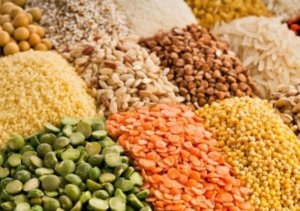 Some of the most popular agricultural commodities traded in the UK are:
Some of the most popular agricultural commodities traded in the UK are:- Coffee
- Sugar
- Wheat
- Soybeans
- Orange juice
- Cocoa
- Rice
- Cotton
There are many more agricultural products that can be traded, including barley, lumber, livestock, and dairy. However, you won’t find agricultural commodities trading to be as widely available among UK stock brokers.
Metals
 The most commonly traded metals in the world are gold, silver, and copper. Gold and silver are prized as precious metals that have their own inherent value. The price of these metals typically moves in the opposite direction of the stock market, making them popular among stock investors who want to diversify their portfolios.
The most commonly traded metals in the world are gold, silver, and copper. Gold and silver are prized as precious metals that have their own inherent value. The price of these metals typically moves in the opposite direction of the stock market, making them popular among stock investors who want to diversify their portfolios.Copper, along with lesser traded metals like aluminum, platinum, and palladium, is often traded as a building material since it’s used in wiring and plumbing. The price of these metals typically goes up when the global economy is booming and drops when the global economy contracts.
Energy Products
Energy products like crude oil, natural gas, kerosene, and heating oil are also highly traded. In fact, crude oil is the single most widely traded commodity not just in the UK, but in the entire world. The price of oil can be highly volatile, with the state of the global economy driving much of the overall direction of energy prices.
Why People Trade Commodities
There are a few important advantages to UK commodity trading, especially if you’re trading commodities to diversity your portfolio. While there are different triggers for price changes among commodities, most commodities don’t move in lockstep with the stock market. So, if you typically buy shares, trading commodities can help you mitigate your risk to a downturn in the stock market.
At the same time, commodities can help you hedge against some economic risks like inflation. Whereas stocks and bonds typically lose value in the face of inflation, commodities tend to hold their ground. Some agricultural commodities can also hold their value or even gain in value during global economic slowdowns, when most other assets are losing money.
Commodities are also volatile, and that can be an advantage in itself. Volatile assets are risky, but they may also provide more opportunities for profit. Many commodities react strongly to news events and economic conditions not just in the UK, but around the world.
How to Potentially Make Profits in Commodity Trading
Profiting from commodity trading in the UK takes time, practice, and dedication. You can make a profit when you buy CFD or futures contracts for a product and then the price of the product rises. You can then sell your CFDs back to your broker or your futures contracts back onto the open market at a higher price than what you bought it for.
Alternatively, if you believe that the price of a commodity will go down, you can short sell CFDs or futures contracts for that product. If the price drops, you then buy contracts at a lower price to exit your position.
Notably, since you can use leverage while commodities trading, you can make a profit even off of small changes in the price of the underlying asset. At leverage of 10:1, a 1% change in the value of, for example, wheat would change the value of your CFD or futures position by 10%.
Commodity Trading Risks
There’s always a risk when trading commodities that the trade will go against you. If you buy copper CFDs, say, and the price falls, you could be forced to sell your CFDs for less than you bought them for.
Most brokers offer negative balance protection, so you can never lose more money than you have in your trading account. However, when trading with leverage, losses can happen quickly since every price change in the underlying asset is magnified in your position. Be sure to use stop loss orders to protect yourself against large financial losses.
Commodity Trading Strategies
It’s important to approach commodity trading with a clear strategy and stick to it. There are many different types of commodity trading strategies you can use. Let’s take a closer look at three strategies that are perfect for beginners.
Range Trading
Range trading is a useful strategy when a commodity’s price moves sideways between an upper resistance level and a lower support level. The price can repeatedly bounce up and down between these two levels, offering opportunities to trade as it moves.
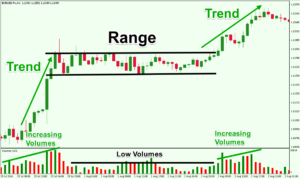
The key to range trading is identifying the upper and lower bounds through technical analysis. Bollinger Bands can often reveal a commodity’s price range, but in some cases you’ll need to draw trendlines yourself. In any case, be wary of potential breakouts above or below the range that require a different approach.
Trend Following
Commodities can be highly volatile in the short term, but the prices of many products trend over a scale of months to years. Trading in the direction of the trend can not only be very effective, but also provide a level of insurance for your trade. Even if day trading goes against you one day, you may be able to hold your position and benefit from the broader trend a week or a month later.
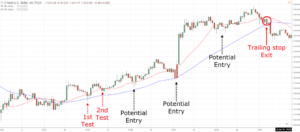
When using a trend following strategy, it’s important to keep a close watch on the strength of the trend. Momentum indicators like moving averages and MACD can be very useful for this purpose.
Seasonal Trading
One thing that’s unique about commodities compared to other types of assets is that they’re real-world products that people and businesses actually use. As such, there are seasonal fluctuations in the prices of many commodities.
For example, the price of natural gas often goes up in the winter when many people are using it in their homes. The price of oil is often high during the summer when more people are travelling. The prices of agricultural products often rise and fall with the harvest.
Understanding these seasonal price fluctuations, which can often be subtle, can help you correctly predict the direction of a trend or whether a commodity will break out of its trading range.
Commodity Trading Tips
Getting started with online commodity trading can be difficult. To jump start your trading, try these five tips:
- Take a Commodity Trading Course
While this guide is a great place to start learning about commodities trading, a UK commodity trading course can help you dive much deeper into the market. Many top commodities traders offer courses online, as do a handful of brokers. Some even offer personalized feedback on your trading so that you can adjust and improve your trading as you go.
- Read Commodity Trading Books
Another great way to get a deeper understanding of how commodities trading works is to pick up a commodity trading book. Some of our favourites are “A Trader’s First Book on Commodities” by Carley Garner and “Hot Commodities: How Anyone Can Invest Profitably in the World’s Best Market” by Jim Rogers.
- Try a Commodity Trading Demo Account
With a commodity trading demo account, you can dive into commodities trading without putting real money on the line. This is a great way to try out strategies and learn about price movements in a specific product. Using a demo account can also help you get acquainted with your broker’s trading tools.
- Start with One Commodity
It’s easy to get excited by the range of different commodities you can trade. But starting with one commodity can help you focus and practice your skills. Become an expert on that single product and understand all the factors that influence its price before moving on to trading another commodity.
- Protect Against Downside
An important part of succeeding as a commodities trader is to limit your losses. You don’t have to win every single trade, but you do have to prevent bad trades from wiping out all your profits.
To do that, some traders place a stop loss order with every trade. With a stop loss, your broker will automatically close your position if the trade goes against you. You can also set trailing stop losses, which rise as the value of your position rises, to lock in profits after a successful trade.
Commodity Trading Platforms
Getting the a commodity trading platform can be extremely important. Your broker controls everything from what instruments you can use to trade commodities to how much it costs. So, let’s review some popular commodity brokers in the UK.
Plus500
Plus500 is another popular commodities CFD broker in the UK. This platform offers trading on 22 different commodities, including livestock such as feeder cattle and lean hogs.
One of the things that stands out about Plus500 is that you can trade with leverage of up to 150:1 on gold, silver, wheat, and more. Coffee trades with leverage up to 100:1, and even products like cattle can be traded on margin up to 20:1. These high leverage rates make Plus500 ideal for placing large bets on the commodity market.
We also like Plus500 because it offers a user-friendly trading platform. The broker’s charting interface is easy to use and offers nearly 100 built-in technical studies. Plus500 also has a mobile app, and any price alerts you set on the desktop will be automatically pushed to your phone for trading on the go.
Our Rating
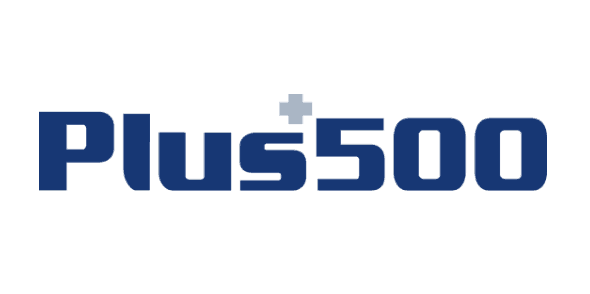 80.5% of investors lose money when trading CFDs. Sponsored ad
80.5% of investors lose money when trading CFDs. Sponsored adAvaTrade
AvaTrade offers commission-free online commodity trading through CFDs. The broker has slightly higher spreads than some of its competitors, but this is more than justified given the quality of the trading platform.
In addition to offering its own charting software, AvaTrade gives all account holders access to MetaTrader 5. With this trading platform, you can create your own custom indicators and backtest strategies against historical price data. You can even use trading signals to automate your commodities trading and forex trading in the UK.
AvaTrade allows you to trade with leverage of up to 200:1 for popular commodities like gold. However, the range of CFD offerings is more limited than at other brokers. You’ll find popular agricultural commodities like wheat and sugar, but not livestock, orange juice, or rice.
Our Rating
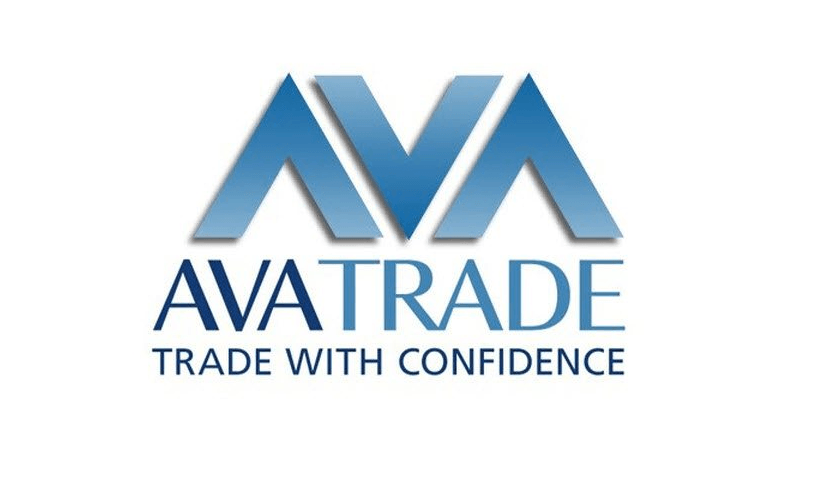 There is no guarantee you will make money trading with this provider. Sponsored ad
There is no guarantee you will make money trading with this provider. Sponsored adHow to Start Commodity Trading
If you’re ready to dive into online commodity trading, the first step is to sign up for a new brokerage account.
Step 1: Open a New Commodity Trading Account
Head to broker’s homepage and click the ‘Join Now’ button. You’ll need to create a new username and password, then enter personal details like your name, email, and birthdate.
To comply with government regulations, you’ll also need to verify your identity. You can do this online by uploading a copy of your passport or driver’s license and a copy of a recent utility bill.
Step 2: Fund Your Account
You can fund your account using several convenient methods. The broker accepts credit and debit cards, e-wallets like Neteller and Skrill, and bank and wire transfers. Just keep in mind that brokers require a minimum deposit when you open a new account.
Step 3: Place Your First Commodity Trade
Now you’re ready to place your first online commodity trade. Search for your favorite commodity, like ‘Gold,’ in the box at the top of the dashboard. When it appears, click ‘Trade.’
That will open a new order form. Enter how much money you’d like to trade with and specify whether you’d like to apply leverage to your position.
When you’re ready, click ‘Trade’ to buy your first commodity.
Conclusion
Commodities trading in the UK offers traders the ability to speculate on the price of products that are widely traded around the world. You can trade many different commodities, including agricultural products, metals, and energy products. Commodities trading is advantageous particularly for stock traders because the price of commodities often moves out of sync with the broader market.
FAQs
How does commodity trading work?
You can get financial exposure to the price of a commodity without actually owning it by trading CFDs, futures, or options. If you buy a contract for a commodity and its price rises, you can sell your position for a profit.
What is a popular online commodity trading site for a beginner?
Beginner-friendly commodity trading platforms will offer easy to use charts and educational guides that don’t overwhelm.
What is a popular commodity trading app?
Plus500 is a popular app for commodity trading on the go. It offers commission-free CFD trading, user-friendly charts that are adapted for mobile, and a handy market news feed.
How much money can you make in commodity trading in the UK?
There’s no limit to how much you can make while trading commodities. That said, it’s important to manage risk and keep your expectations realistic. Start small and grow your account over time.
What is open interest in commodity trading?
Open interest is the number of futures contracts for a commodity that are open at the end of a trading day. Increasing open interest is often a sign of strength behind a price move.
Michael Graw
View all posts by Michael GrawMichael is a writer covering finance, new markets, and business services in the US and UK. His work has been published in leading online outlets and magazines.
Latest News
Halifax Share Dealing Review
If you’re looking for a low-cost share dealing platform that makes it super easy to buy and sell stocks, ETFs, and funds, it might be worth considering Halifax. You don’t need to have a current account with the provider, and getting started takes just minutes. In this article, we review the ins and outs of...
UK Banks Approved Nearly 1 Million Mortgages in 2019, 7.4% More than a Year Ago
The United Kingdom’s high street banks approved close to a million mortgages in 2019. Data gathered by LearnBonds.com indicates that 982,286 mortgages were approved in 2019, an increase of 7.4% from 2018’s 909,597. The mortgage approval entails loans for home purchase, remortgaging and other loans. Compared to 2018, the number of mortgages approved for home...
WARNING: The content on this site should not be considered investment advice and we are not authorised to provide investment advice. Nothing on this website is an endorsement or recommendation of a particular trading strategy or investment decision. The information on this website is general in nature, so you must consider the information in light of your objectives, financial situation and needs. Investing is speculative. When investing your capital is at risk. This site is not intended for use in jurisdictions in which the trading or investments described are prohibited and should only be used by such persons and in such ways as are legally permitted. Your investment may not qualify for investor protection in your country or state of residence, so please conduct your own due diligence or obtain advice where necessary. Crypto promotions on this site do not comply with the UK Financial Promotions Regime and is not intended for UK consumers. This website is free for you to use but we may receive a commission from the companies we feature on this site.
Copyright © 2022 | Learnbonds.com
We use cookies to ensure that we give you the best experience on our website. If you continue to use this site we will assume that you are happy with it.Scroll Up



